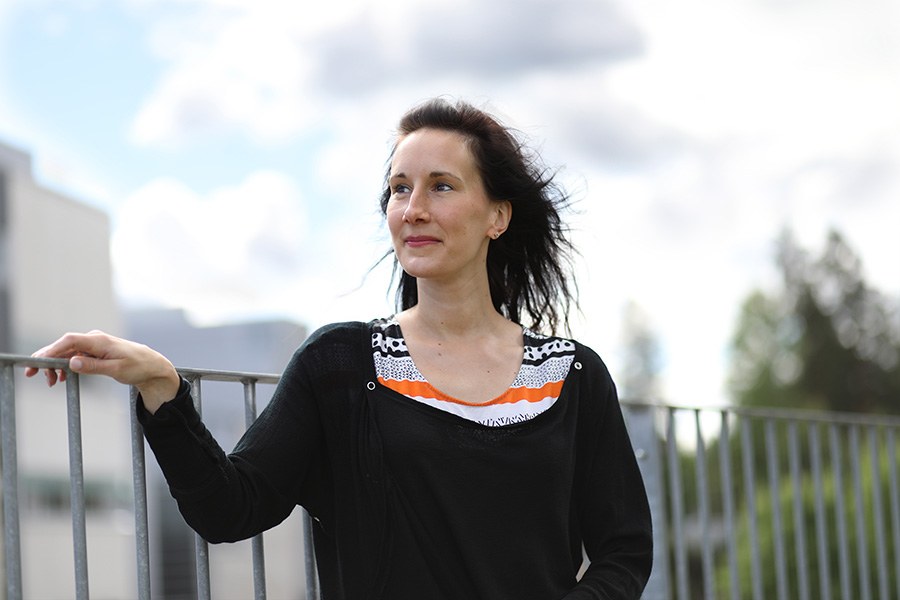Jane and Aatos Erkko Foundation grants €1.4 million to advance expertise in managing the dark side of AI

The Jane and Aatos Erkko Foundation (JAES) has awarded a €1.4 million grant to a Tampere University project titled EVIL-AI (“evil eye”) – the Identification and Mitigation of the Negative Effects of Artificial Intelligence Agents, which explores and counters the dark side of AI.
This project received the most substantial grant – €1,413,000 – in JAES’s second application round in 2024. The grant was awarded to Professor of Information and Knowledge Management Henri Pirkkalainen, Professor of Software Engineering Pekka Abrahamsson and Associate Professor (tenure track) of Gamification Johanna Virkki. Pirkkalainen is affiliated with the Faculty of Management and Business at Tampere University, while Abrahamsson and Virkki are based in the Faculty of Information Technology and Communication Sciences.
The team of researchers is set to delve into the darker realms of AI with the goal of identifying and preventing unethical and criminal uses of AI and to assess the regulation of AI.
The four-year EVIL-AI project zeroes in on AI agents, which are software or systems capable of performing seemingly intelligent tasks without human intervention to achieve specific goals.
The project will pinpoint the risks and threats associated with AI agents. Professor Henri Pirkkalainen, who leads the project, emphasises that the critical examination of AI agents focuses especially on their unethical and undesirable behaviours.
“AI agents could potentially be exploited to deceive people, or they might conspire to group together and break free from out control to engage in harmful activities that would be difficult to stop,” Pekka Abrahamsson says.
“AI agents could potentially be exploited to deceive people, or they might conspire to group together and break free from out control to engage in harmful activities that would be difficult to stop,” Pekka Abrahamsson says.
The project seeks to identify and counteract the negative impacts of AI agents.
“Rogue AI agents could target anyone of us. In the near future, AI agents assimilated into our everyday lives could assume physical forms mirroring humans or pets and might even exhibit human-like personality traits,” Johanna Virkki says.

The EVIL-AI project investigates the various malicious embodiments of AI, including chatbots, service robots and metaverse avatars.
“Our research is particularly focused on the diverse interactions between humans and AI agents, occurring in both Virtual Reality (VR) and the physical world. We will examine the evolution of malevolence in AI agents and assess a range of risk scenarios where AI agents are exploited for malicious purposes, such as phishing and the spread of disinformation,” Pirkkalainen notes.
The EVIL-AI project marks a pivotal research initiative, striving to advance world-class research beyond traditional disciplinary confines.
“Our ultimate goal is to establish a leading multidisciplinary research unit led by Tampere University, devoted to the study of the dark side of AI,” Henri Pirkkalainen says.

The EVIL-AI project also probes into the potential scenarios of malevolent AI escaping into the internet. AI agents want something from their user: what happens when humans encounter different embodiments of sinister AI?
The three co-leaders of EVIL-AI agree that it is not enough to address the risks of AI only after they have manifested.
“Research that draws upon multiple disciplines to confront the challenges posed by AI agents is indispensable. It is the only viable approach to gain an overall understanding of AI risks and to proactively address the dark side of AI agents,” Pekka Abrahamsson says.
This summer, the EVIL-AI consortium will invite applications for a four-year postdoctoral position within the research group led by Professor Pirkkalainen (Information Systems science)
“This position presents an excellent opportunity to specialise in the study of the dark side of AI. We eagerly anticipate applications from outstanding candidates for this vital research endeavour,” Pirkkalainen points out.

***
In the second application round of 2024, JAES primarily allocated funding to engineering research projects, with eight projects receiving grants totalling €5.1 million.
Inquiries:
Henri Pirkkalainen, tel. +358 50 437 1567, henri.pirkkalainen [at] tuni.fi (henri[dot]pirkkalainen[at]tuni[dot]fi)
Pekka Abrahamsson, tel. +358 40 541 5929, pekka.abrahamsson [at] tuni.fi (pekka[dot]abrahamsson[at]tuni[dot]fi)
Johanna Virkki, tel. +358 40 849 0618, johanna.virkki [at] tuni.fi (johanna[dot]virkki[at]tuni[dot]fi)





